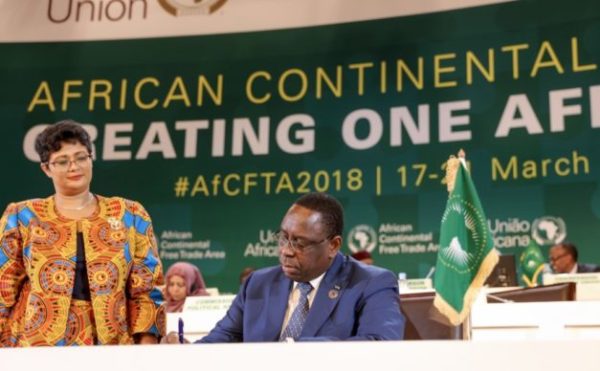After a week of bitter negotiations at the National Committee for International Trade Negotiations (CNNCI), industry players gathered on Tuesday (July 24th) to evaluate the first phase of the negotiations for the African Free Trade Area (ACFTA).
The foundation has focused on rules of origin (RO) and trade in services. The aim was to take stock of the work already done on RO and trade in services, but also to address the outstanding issues on the products still to be liberalized.
On this occasion, the Senegalese Minister of Commerce, Alioune Sarr, said that “this meeting which is part of the prosecution work
the harmonization of Senegal’s positions in the various issues under discussion, should help to consolidate the basis for a broad consensus on the negotiations “.
And to emphasize that “after the first phase, there is now the embedded work of the ROs, the tariff concession lists and the specific commitments in the various sectors of the priority services”.
Alioune Sarr recalled that Senegal, which exports nearly 50% of its products to Africa, has an obligation to invest in ZLECAF, which has 1.2 billion people and a combined GDP of 2,500 billion to boost the competitiveness of companies. the increase in market shares.
Based on statistics from the United Nations Technical Commission for Africa, the Minister revealed that ZLECAF has the potential to boost intra-African trade by 52.3%, eliminating import and import duties. doubling this trade if non-tariff barriers are also reduced.
To succeed the bet of this economic integration, the former Director General of the Senegalese Export Promotion Agency (ASEPEX) urged all the actors of the trade to work on the action plan of the reduction of the cost of the businesses and trade transition.
For her part, the director of the Ministry of Commerce, Assom Aminata Diatta, said that this free trade area will boost the process of industrialization of the country, which is an essential element for development.
It should be noted that the second stage of negotiations, scheduled for September, will be devoted to competition, investment and intellectual property rights issues in this free trade area.
Recall that for the effectiveness of the entry into force of the ZLECAF, it is necessary that 22 out of the 55 member countries ratify the convention. Currently, 49 countries are signatories and 8 have ratified the agreement.



